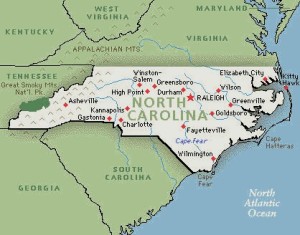Gert Oostindie & Inge Klinkers ~ Decolonising The Caribbean ~ Dutch Policies In A Comparative Perspective
 For over two centuries much of the Caribbean has been embroiled in heated,and initially violent, decolonisation. One may well date the beginnings of the process to the first recorded retreats of European colonisers, the conclusion of the eighteenth century peace treaties between the British and the Maroons of Jamaica, and then between the Dutch and the Maroons of Suriname – struggles for freedom which were, however, inconsequential in post-colonial history. So, Caribbean decolonisation formally began with the 1791 Haitian Revolution. With this seminal event came the dawning of a new era. Constitutional sovereignty was subsequently secured by the Dominican Republic (1844) and at the start of the twentieth century by Cuba (1901). Both were late in securing sovereignty by Latin American standards.
For over two centuries much of the Caribbean has been embroiled in heated,and initially violent, decolonisation. One may well date the beginnings of the process to the first recorded retreats of European colonisers, the conclusion of the eighteenth century peace treaties between the British and the Maroons of Jamaica, and then between the Dutch and the Maroons of Suriname – struggles for freedom which were, however, inconsequential in post-colonial history. So, Caribbean decolonisation formally began with the 1791 Haitian Revolution. With this seminal event came the dawning of a new era. Constitutional sovereignty was subsequently secured by the Dominican Republic (1844) and at the start of the twentieth century by Cuba (1901). Both were late in securing sovereignty by Latin American standards.
Whereas the three most populated Caribbean countries had now gained independence, the rest of the region remained firmly locked within colonialism, either dependent on the traditional metropolitan powers, the United Kingdom, France and the Netherlands, or usurped by the ascending power of the United States. At the outbreak of World War ii most Caribbean territories were still bound in colonial tutelage.
A new wave of decolonisation swept the region in the 1960s and 1970s. Today most of the Caribbean is sovereign and some 85 per cent of the 37 million Caribbean people live in independent countries. However, it appears that independence was achieved at a high price. In general terms, standards of living in the non-sovereign Caribbean are significantly higher than they are in the independent countries. Furthermore, in a region that has witnessed many dictatorial regimes and territorial disputes, and which
now faces the contemporary challenges of international crime, the remaining non-sovereign territories still continue to enjoy a higher degree of security and stability. Small wonder then that the urge for independence in these territories is weak, and indeed it seems that Caribbean decolonisation may well have reached its final dénouement with the present status quo.
Download the book (PDF-file): www.oapen.org/
Amsterdam University Press,Amsterdam, 2003
How Can Gov. McCrory’s Proposal Work? Preliminary Thoughts And Policy Considerations
On Monday, March 30, the Winston-Salem Journal published a piece titled “Economic development bill stalls in Senate” starting with Gov. McCrory’s proposal to “recruit an automobile manufacturer and create thousands of jobs and scores of companies”. This is really an interesting development proposal that can boost production growth in North Carolina. The article [i] seeks to discuss the developmental and industrial dimensions of this proposal and to offer policy considerations deemed absolutely necessary for the successful implementation of such an ambitious plan.
The Present Context
There has been much talk and debate on the recent economic downfall of the United States. Causes for concern include persistent fluctuations in output, job creation and productivity; massive federal budget and trade account deficits; and issues associated with “capital flight” and industrial decline (U.S. National Economic Accounts, various years). These fluctuations are closely linked to unutilized labor force, lost output, and social problems. Furthermore, the economic effects of the recent financial crisis are complicated and far-reaching because of simultaneous shocks in the housing, stock, and labor markets. Actual spending, unemployment, home equity, well-being, emotional and physical health, and expectations about the future have all been affected by a significant slowdown in endogenous productive activity and various problems associated with financial markets. Hence, it is argued here that three important themes need to come to the center stage:
1. A discourse on the “appropriate” policy interventions,
2. The importance of adopting a long-term perspective, and
3. Emphasis on strengthening local production lines.
An Alternative Development Paradigm
The US model of a pluralist market economy is strongly consumer and short-term oriented. Its strength is dynamism and flexibility; its dominant philosophy is private sector competition and minimal government. As a result, industrial policy has not been developed in a systematic or coherent fashion as an important piece of policy making, and the country has not generally seen itself as being involved in the promotion of specific sectors. Read more
Civil Domains and Arenas in Zimbabwean Settings. Democracy and Responsiveness Revisited – DPRN Five
Introduction (written 2008 – first published 2010)
A popular remedy for Africa’s predicament is the promotion of ‘civil society’. It is conventionally seen as a collection of various kinds of non-profit bodies separate from the state and business sector. It is framed within a consensual model of politics, and thus capable of working in ‘partnership’ with both state and business sectors in pursuit of common interests, particularly ‘development’ and ‘democracy’ [i]. Since the late 1970s donors sought substitutes for the state in the private sector. In the 1980s they discovered the virtues of the non-profit branch of this sector. They tasked older entities such as mission hospitals and newly-arrived non-governmental organisations (NGOs) with providing a range of services, from schooling and healthcare to small enterprise promotion, that were once considered responsibilities of the public sector.
Under their neoliberal paradigm, donors have tried to raise the nonprofit sector’s political status. Beyond service provision, its main task is to counter government power. Here civil society is cast as a hero, who routinely calls a villainous state to account. Yet this model of ‘civil society’ has evoked controversy. Questions have arisen about the effects of NGOs not only as substitute providers of basic services, but also as vehicles of public politics, effectively substituting for opposition political parties [ii]. A number of writers have called attention to ‘the obvious: that civil society is [largely] made up of international organisations’. Some argue that the whole concept of ‘civil society’ as promoted by outsiders does not match African sociological or political realities, and can ultimately weaken, rather than strengthen the power of common citizens. There are calls, in short, for a re-think. Read more
Post-Apartheid South Africa And The Crisis Of Expectation – DPRN Four
The collapse of the apartheid state and the ushering in of democratic rule in 1994 represented a new beginning for the new South Africa and the Southern African region. There were widespread expectations and hopes that the elaboration of democratic institutions would also inaugurate policies that would progressively alleviate poverty and inequality.
Fourteen years into the momentous events that saw Nelson Mandela become the president of South Africa, critical questions are being asked about the country’s transition, especially about its performance in meeting the targets laid down in its own macro-economic programmes in terms of poverty and inequality, and the consequences of the fact that the expectations of South Africans have not been met.
At a general level the euphoria of 1994 has come up against deepening inequality, rising unemployment, the HIV pandemic and bourgeoning violent crime. The latter has led one writer to conclude that South Africa is ‘a country at war with itself’ (Altbeker 2007).
South Africans have trusted democracy with the hard task to deliver jobs, wealth, healthcare, better housing and services to the people. But now that all of this is slow in arriving, there is growing disquiet and increased community protests that have sought to challenge the government on the pace of service delivery.
It is the level of what we have labelled a crisis of expectation that this paper speaks to. It looks at what under lies this crisis of expectation and what are the potential consequences. Read more
- Page 4 of 4
- previous page
- 1
- 2
- 3
- 4





